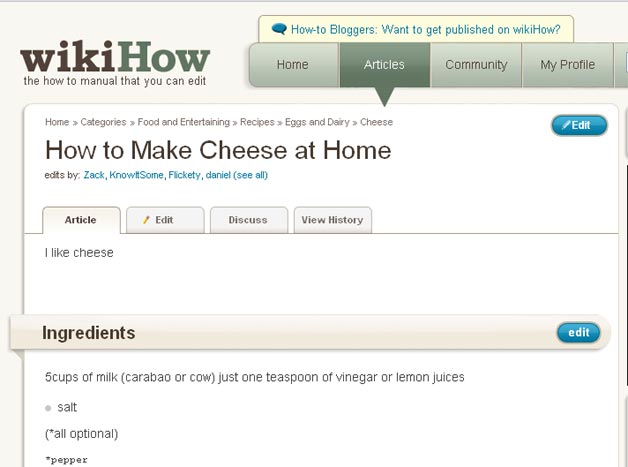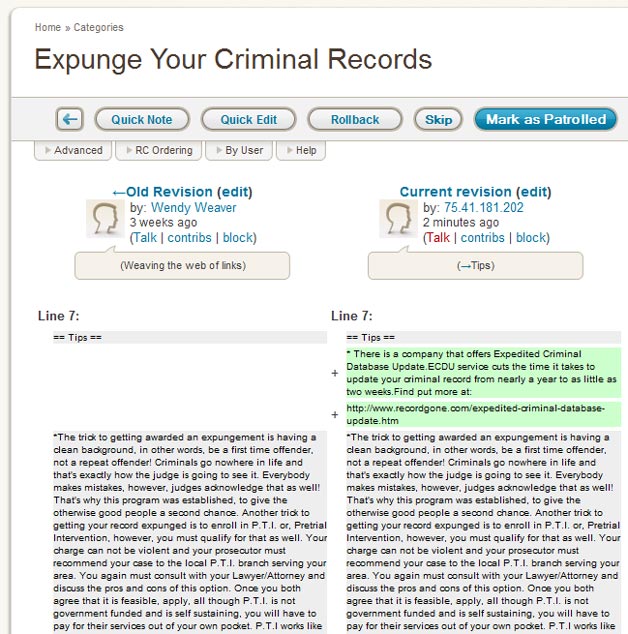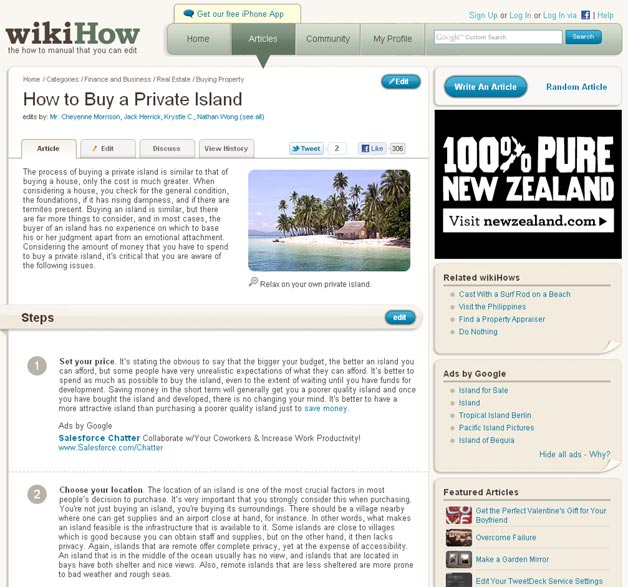Demand Media’s eHow site is no stranger to controversy. It’s often been criticized for saturating the web with content of questionable quality, but the company has heard these complaints loud and clear, and has been making numerous efforts to bring its overall quality up. This has included the deletion of at least 300,000 articles, new feedback tools, and partnerships with various leading voices in their respective fields. Most recently, the company has greatly reduced its number of writing assignments.
We’ve chronicled all of this throughout the past year, and you can view all of our coverage oh eHow here for more background.
We had a conversation with Jack Herrick, who used to run eHow before selling it to Demand Media about the direction the site is going in. We had talked to him in the past about eHow’s strategy vs. wikiHow‘s (Herrick’s current site) – basically the content farm vs. wiki approach and their relationships to content quality. He’s impressed with eHow’s current direction.
“Overall, I’m impressed with eHow’s new focus on quality,’ Herrick tells us. “Web readers win when publishers focus on quality over quantity. And when one of the highest volume publishers on the web turns more attention to quality, web users should crack open the bubbly. The old eHow focused on pleasing the mighty Google overlord. The new eHow is trying to convince consumers to create their own individual magazine on eHow and then share it with their social network. It’s a big shift.”
It’s worth noting that the “Google overlord” has taken a drastically different view of content farm-style content over the past year. That’s not to say that Google didn’t care about quality in the past, but the Panda update introduced this year, has made it more difficult for this type of content to do well in search.
“Just to be clear, wikiHow has always been going a different direction than eHow,” says Herrick. “At wikiHow, we’ve been working on building the world’s best how-to manual from day one. Instead of saturating the web with 3 million articles, we built ‘only’ 123,000 articles over 6 years. And all of our articles are being constantly improved via the magic of wiki editing. Our work is better today than it was 6 months ago and 6 months from now we will be even better.”
“eHow appears to be making 3 big shifts in their content production: They will be producing more videos, more slideshows, and more feature length articles,” he says. “The new prominence of slideshows indicates they are increasingly moving away from their initial focus on ‘how-to’ to a broader magazine-like media site. For example the new eHow site ‘Shift,’ reminds me of a combination of iVillage meets Huffington Post meets Business Insider. Instead of traditional how-tos they are producing click friendly slideshows like this one of “top 100 women on the move”.
“Media like this is much more likely to get shared on social networks than a useful but arguably boring how-to article,” says Herrick. ” An SEO bonus: If Google’s Panda algorithm measures time on site as a quality factor, time consuming media like slideshows and videos may boost overall search visibility for all of ‘old’ eHow.”
I’d add that the more that a piece of content is shared, the better it’s likely to do in search as well.
“eHow has increasingly produced feature articles with over 1,000 words and more research and fact checking than the arguably shallow 350-500 standard articles that make up the vast majority of their how-to library,” says Herrick. “I think these new feature articles are a big improvement. At wikiHow, we have always thought it makes sense to take as many words as necessary to adequately cover the topic. Sometimes we write just a few hundred words to cover a simple topic such as: How to Make a Wi-Fi Booster Using Only a Beer Can or How to Peel a Kiwi.”
“Other times we need thousands of words to cover complex topics like: How to Survive in Federal Prison.”
“It’s good to see eHow finally recognizing that some topics need more depth than 500 words allows,” he says. “The Demand Media guys are smart. I’m sure this shift in strategy is based on a lot of user data. I think it’s going to work well for them.”
“wikiHow on the other hand is sticking to our founding mission,” Herrick notes. “We have the not so humble ambition of building the world’s default how-to manual. We’re going to keep using new technology and our fantastic community of volunteer editors to provide the best how-tos on the web. Our work is far from done.”


